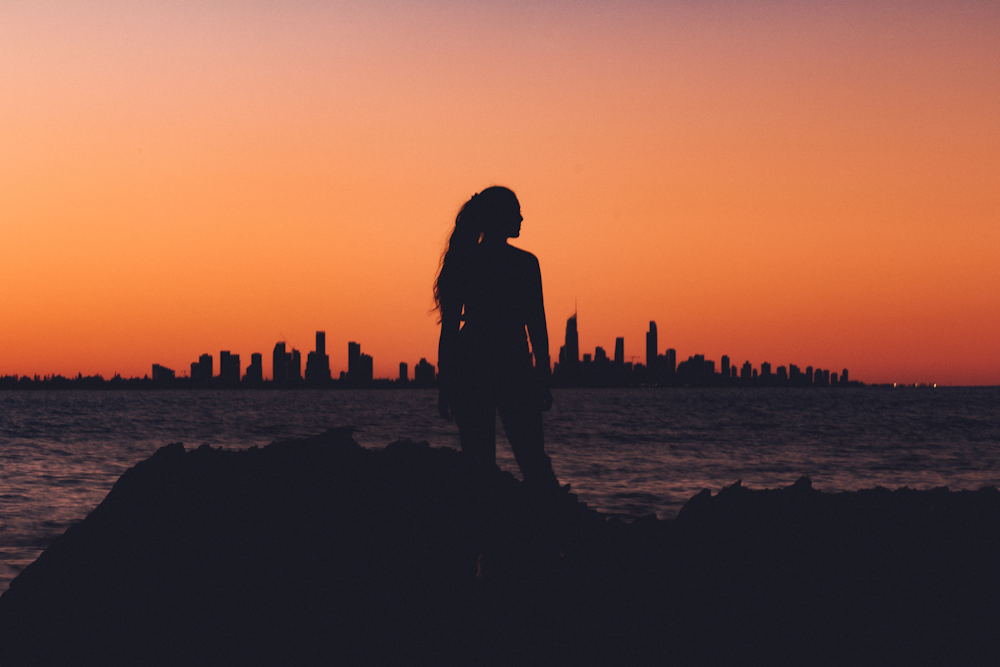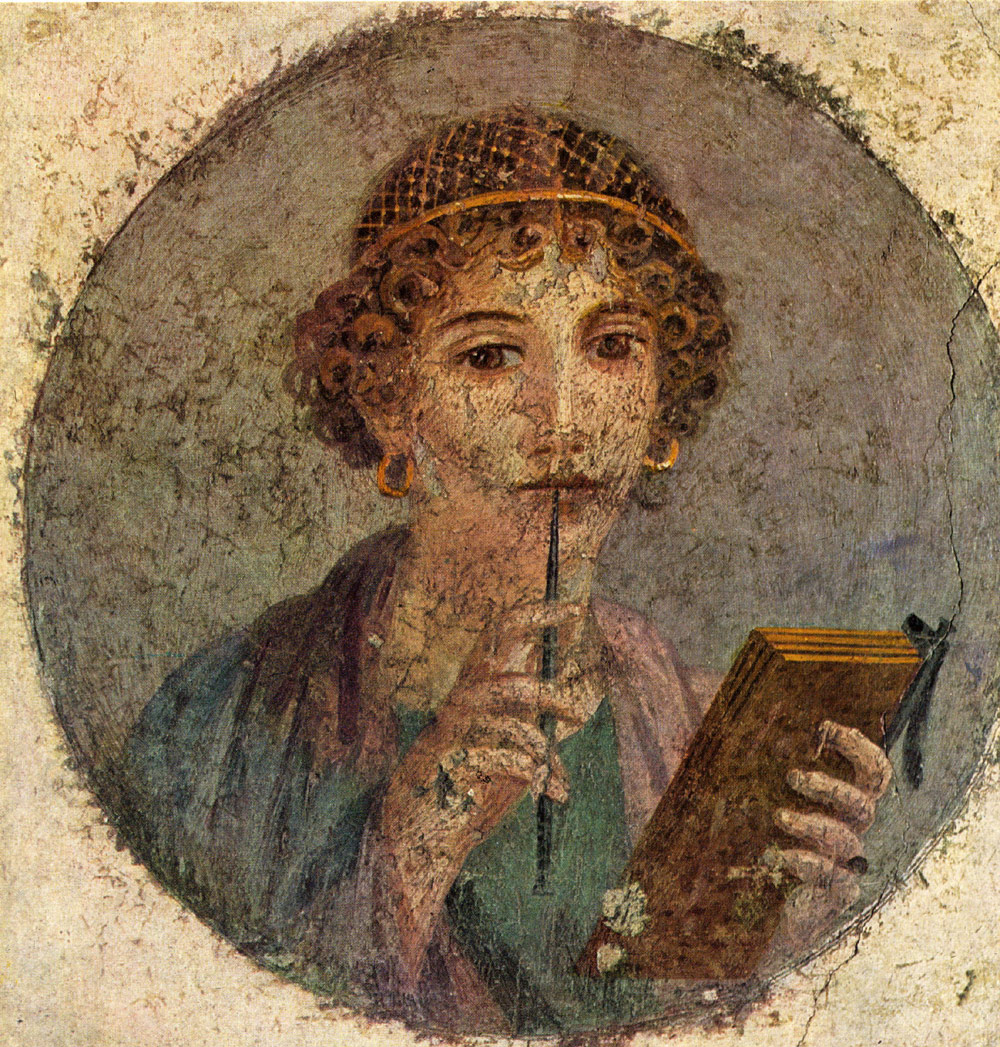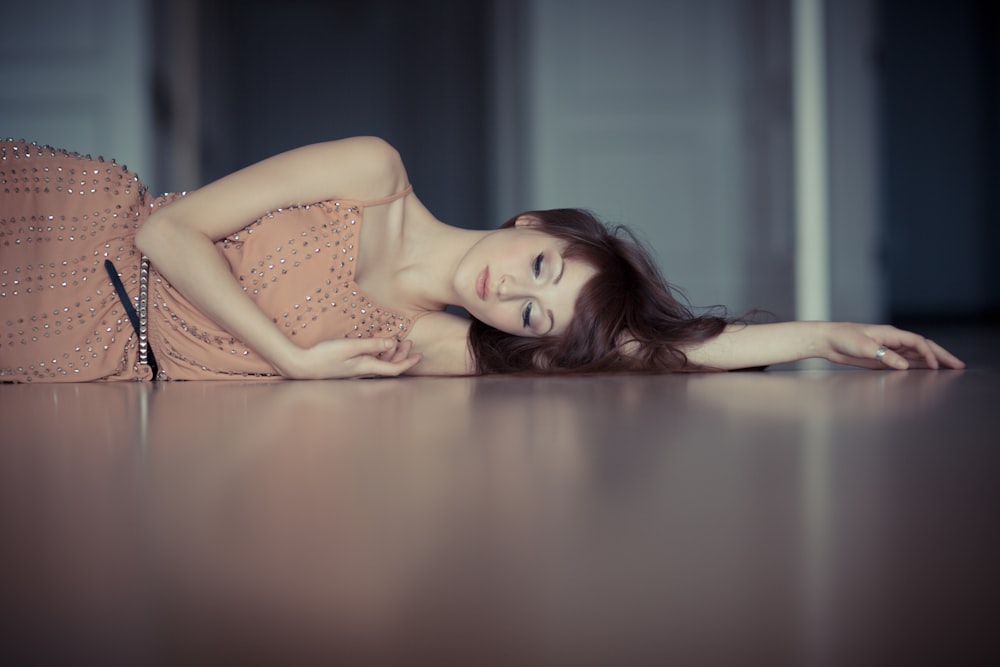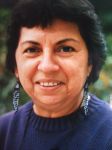Lyric poet Sappho is widely regarded as the greatest writer of ancient times. She came to be known as the “tenth muse.” While scholars can’t agree whether Homer even existed, Sappho’s work was recorded and preserved by other writers. Although she is believed to have been married and had one daughter, much of her work is written to other women, exalting them for their beauty and often achieving a poetic frenzy of desire. She also makes references to the political arena of the ancient world she inhabited.
The unfortunate destruction of a volume of all her work—nine books of lyric poetry and one of elegiac verse—occurred in the early Middle yAges, engendering a search for her writing that continues even now. The Catholic Church deemed her poetry to be obscene and burned the only volume containing her complete body of work, thus erasing what could only be some of the finest poetry in all of history. Known for its powerful phrasing and intensity of feeling, erotic and otherwise, Sappho’s poetry is immediately striking and accessible to the reader. Upon reading Sappho, you feel that you know her; her ecstatic expressions of lesbian passion still inspire, and she is regarded stylistically as being the first modern poet.
O soft and dainty maiden, from afar
I watch you, as amidst the flowers you move, And pluck them, singing.
More golden than all gold your tresses are: Never was harp-note like your voice, my love, Your voice sweet-ringing.
—Sappho of Lesbos
My mom blames California for me being a lesbian. “Everything was fine until you moved out there.” “That’s right, Mom, we have mandatory lesbianism in west Hollywood. The Gay Patrol busted me, and I was given seven business days to add a significant amount of flannel to my wardrobe.”
—Coley Sohn, funny lesbian stage & screen actress and indie filmmaker
We love men. We just don’t want to see them naked.
—Two Nice Girls, “dyke rock” band out of Austin, Texas
When you’re in love, you never really know whether your elation comes from the qualities of the one you love, or if it attributes them to her; whether the light which surrounds her like a halo comes from you, from her, or from the meeting of your sparks.
—Natalie Clifford Barney, American expatriate playwright, poet, novelist, and Parisian salonist
Every woman I have ever loved has left her print upon me, where I loved some invaluable piece of myself apart from me—so different that I had to stretch and grow in order to recognize her. And in that growing, we came to separation, that place where work begins.
—Audre Lorde, award-winning writer, poet, and civil rights activist
I was raised around heterosexuals…that’s where us gay people come from.
—Ellen DeGeneres, comedian, writer, producer, actor, and awards and talk show host
I can play a heterosexual. I know how they walk. I know how they talk. You don’t have to be one to play one.
—Lily Tomlin, insightful lesbian actress, comedian, writer, singer, and producer
Are there many things in this cool-hearted world so utterly exquisite as the pure love of one woman for another?
—Mary MacLane, pioneering and controversial turn-of- the-century memoirist
Hick darling…I couldn’t say “je t’aime et
je t’adore” as I longed to do, but always remember I am saying it, that I sleep thinking of you.
—Eleanor Roosevelt, social activist FLOTUS of the ’30s and ’40s, in a letter to Lorena Hickok
This excerpt is from Badass Women Give the Best Advice by Becca Anderson, which is available now through Amazon and Mango Media.






